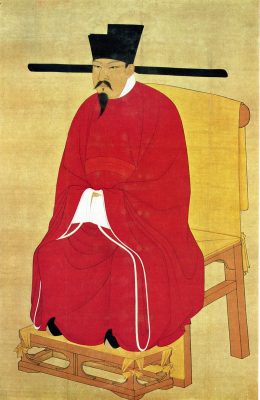The Song Dynasty (960-1279) was a period of great cultural, economic, and technological advancement in China. The population of China doubled during this period, reaching close to 100 million people. This growth was accompanied by a boom in agriculture and trade, as well as an expansion in education and the arts. The Song Dynasty is notable for its development of a highly centralized and bureaucratic state and its promotion of Confucianism as the state ideology.
Overview
The emperor and imperial family held the greatest social power in the Song Dynasty. Still, the gentry who owned lands and those who worked in the government bureaucracy were also very influential. Peasants made up the majority of the population and were required to pay taxes. While slave trading was prohibited, there were still slaves during this period. Criminals were often turned into slaves by the government, and some slave traders kidnapped commoners and illegally sold them into slavery.
The Confucian Ideal of the Four Occupations
The “four occupations” was a system of classification that ranked the scholar-official (shishen) above peasant farmers (nong), artisans (gong), and merchants (shang). It came from the belief that those who worked with their minds (scholar-officials) were more important than those who worked with their hands (farmers, artisans, and merchants).
However, this system was more of an ideal rather than a reality. It does not factor in all the social groups present in Chinese society during this period. There were also religious workers and military personnel, for example. Nonetheless, the “four occupations” system provides a helpful framework for understanding the basic social structure of the Song Dynasty.
Unlike the caste system in Hindu society, class during the Song Dynasty was not inherited. In theory, any male could study, pass the tests, and become a scholar-official. Although, in practice, it was much easier for wealthy families to educate their sons because they had more resources and connections. There was some social mobility during the Song Dynasty, although it was limited.
Filial Piety and Family Dynamics
The Confucian concept of filial piety (xiao) was very important in Song Dynasty society. It dictated that children should respect and obey their parents and elders. This respect extended to ancestors as well, who were worshiped through ancestor veneration.
Families during the Song Dynasty were patrilineal, meaning that lineage was traced through the father’s side of the family. The oldest male in the family had the most authority and made decisions on behalf of the whole family. Families were also often large, with multiple generations living together under one roof.
Women During the Song Dynasty
The position of women in Song Dynasty society was subordinate to men. Women were expected to be chaste, obedient, and submissive to their fathers, husbands, and, eventually, sons. They were not allowed to hold political office and had few opportunities for social or economic advancement. While men could have concubines, women were only allowed to be married to one man at a time. Women were not even permitted to get a divorce.
Despite the limitations placed on them by society, some women were able to gain a measure of power and influence. For example, General Liang Hongyu was a female military leader who fought against the Jurchen invaders. There were also some silver linings for women during the Song Dynasty. For example, women could run their businesses. Unmarried women without brothers or surviving mothers could inherit half of their father’s property.
In terms of education, while they weren’t allowed to take the civil service exams, many women were literate because they had the responsibility of teaching their own children, especially their sons. On the other hand, foot binding continued to be practiced during this period. Women’s feet were bound to make them smaller. Tiny feet were seen as a sign of beauty and femininity. But the practice was also painful and had devastating health consequences. The bottom line is that women in the Song Dynasty had few rights but were still not considered equal to men.
